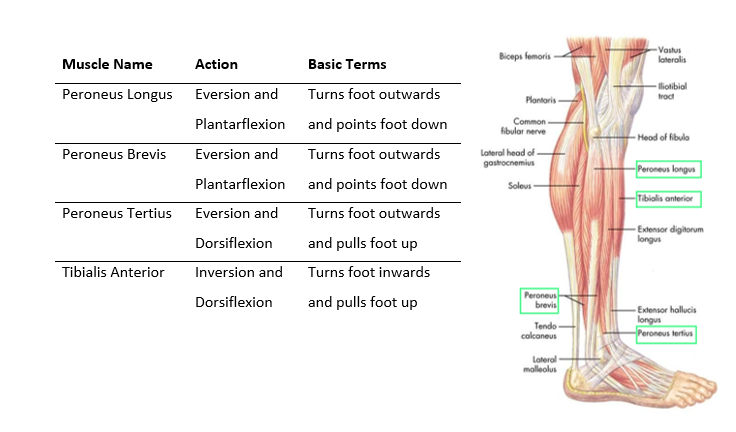USING COMPEX TO PREVENT ANKLE TWIST AND OPTIMISE RECOVERY FROM INJURY
Matt Jaggard, Head of Strength and Conditioning with the Delgado and Lee Pro Tennis Academy explains how Compex devices can be used to prevent ankle injuries and how to optimise recovery and rehabilitation if an ankle injury occurs.
Instagram: @mjtennisperformance
LinkedIn: Matt Jaggard
E-book: International Travel and Tournament Preparation for Tennis
If you are an athlete of any kind then it is likely that you have experienced a very painful ankle sprain or strain. This is a highly common injury within court sport athletes. Compex can aid you by helping to prevent this type of injury from occurring and also whilst recovering if an injury has been experienced.
So how can the use of a Compex muscle stimulation device help?
First of all we need to take a look into the anatomy. This will give you a clear understanding of how the body works, what you need to target and why.

Anatomy
The peroneus muscles also called fibularis muscles or peroneals or peronæus, are a group of muscles in the leg. While the muscle group exists in many variations, it is normally composed of three muscles: peroneus longus, brevis and tertius.
These muscles help control key actions around the foot. They will need to be strong and robust allowing you to resist and control the very actions they allow you to perform. Something that the use of a Compex device can enhance whilst training. The reason that the use of Compex is highly effective with this set of muscles is that they are very difficult to activate.
So where are these muscles located and what do they do?

Ankle Strengthening and Injury Prevention
These muscles can be trained either statically or through a range of traditional ankle mobility, stability and strengthening exercises. This can be done by placing Compex electrode pads on the peroneus muscles and selecting frequencies between 45-70Hz. This will help to increase muscle volume similar to that experienced whilst training for hypertrophy by promoting optimised tissue formation.
Once a period of adaptation for increasing muscle volume has been completed, traditionally 6-10 weeks. It would be recommended that you move into a strength phase for a similar length of time. This requires your muscles to be exposed to frequencies between 75-100Hz.
Completing these two phases routinely will continually allow for the peroneus muscles to increase in volume and strength, making you more stable and helping you to prevent ankle sprains and strains.
Acute Injury Management and Rehabilitation
If you have experienced an ankle injury, the peroneus muscles along with tendons and ligaments around the foot and ankle would have been stretched, strained and damaged.
The use of a Compex device can not only aid with strengthen the muscles as highlighted above. They can also aid the recovery process.
During the initial phase of recovery, dealing with inflammation, Compex can help to reduce muscle soreness (1Hz). Additionally, muscle pain can reduce (5Hz) and capillarisation increased (8Hz). These varying levels of increased blood flow will help improve the supply of oxygen and nutrients to the damaged region. During this phase it is recommended to place the electrode pads around the site of the injury (ankle and foot) rather than the peroneus muscles unless major trauma has also occurred in this area.
During the second phase of recovery with Compex, the profilation phase, frequencies between 10-35Hz can help minimise stiffness. Muscular atrophy can also be minimised whilst helping to manage lingering discomfort and swelling.
Once the symptoms have subsided, just like with any traditional rehabilitation, it is time to start remodelling the muscular tissue within the area which has been effected. Firstly by increasing muscular volume (45-70Hz). Then by increasing strength (75-100Hz) which are both mentioned in more detail above in ‘Strengthening and Injury Prevention’.


